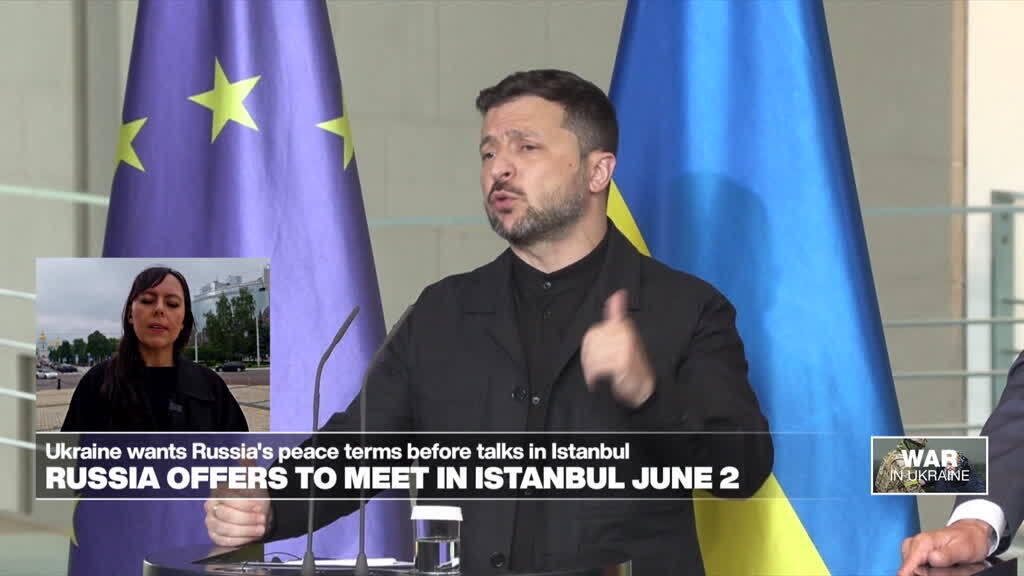Russia's Proposed Peace Memorandum for Ukraine
On Wednesday, Russia announced that it has prepared a draft of a peace "memorandum" outlining the Kremlin's terms for ending the ongoing war in Ukraine. This draft is set to be presented to Kyiv during the latest round of direct negotiations scheduled to take place in Istanbul on June 2. The announcement marks a significant development in the context of the conflict, which has seen multiple attempts at diplomatic resolutions since it began.
Despite the introduction of this new round of talks, reports indicate that Russia's proposals for peace in Ukraine have remained significantly unchanged since the outset of hostilities. According to FRANCE 24 correspondent Emmanuelle Chaze, the narrative from the Kremlin continues to reflect established demands and expectations that have not evolved in response to the ongoing situation and the international community’s pressure.
The ongoing conflict began in February 2022 and has resulted in widespread devastation, both human and infrastructure-related, across Ukraine. International efforts have been made to mediate and encourage peace talks, yet the terms presented by Russia have consistently been seen as uncompromising by Kyiv and its allies. This has led to skepticism regarding the potential outcomes of the upcoming talks.
As the peace discussions in Istanbul loom, it is crucial to consider the broader geopolitical implications of Russia's proposed memorandum. Observers note that Russia seeks to solidify its territorial claims and influence over Ukraine, which complicates the path to achieving a sustainable resolution. The Ukrainian government, supported by its Western allies, continues to advocate for sovereignty and territorial integrity, emphasizing that any negotiations must respect these principles.
The upcoming negotiations in Istanbul may also reflect the pressure both sides are facing from their respective populations, as the war has led to significant casualties and economic distress. The international community, particularly nations involved in diplomatic mediation, will be closely monitoring the talks in hopes of a breakthrough that could pave the way for a more stable European security landscape.
In summary, while Russia's draft peace memorandum represents a continuation of dialogue efforts, the persistent nature of its proposals raises doubts about the feasibility of reaching a mutually acceptable resolution. The context of the conflict, characterized by entrenched positions on both sides, suggests that significant challenges remain ahead as Ukraine and Russia prepare to engage in talks that could shape the future of the region.












